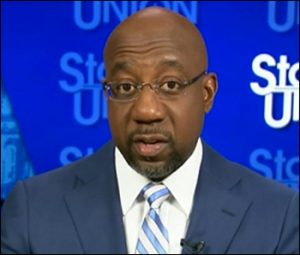By Jim Ellis — Thursday, Dec. 1, 2022
House
Leadership — The announcement from several Republicans saying they will not vote for Minority Leader Kevin McCarthy (R-CA) in the election for Speaker of the House even after he was overwhelmingly chosen the party nominee for the position makes the mathematics of his achieving a majority vote a bit tricky. The leadership election will be decided when the new members are sworn into office on Jan. 3.The sudden and unfortunate passing of Rep. Donald McEachin (D-VA) reduces the number of members taking the oath of office on commencement day to 434. Even so, McCarthy would still need 218 votes if all are present and voting. Therefore, the McEachin death does not reduce McCarthy’s majority quota, but it could become a factor if a “present” vote strategy were to come into play.
Another complicating factor is the outcome of the lone outstanding House race, the CA-13 contest in the Fresno Valley. Republican candidate John Duarte, a local farmer and agri-businessman, predicted that he will eventually win the election once officials finally count all the ballots.
Duarte supports his prediction by pointing out that most of the uncounted ballots are from Fresno and San Joaquin Counties in areas where the Republican performed better than his opponent, state Assemblyman Adam Gray (D-Merced). Currently, the district-wide count is stalled with Duarte clinging to a 593-vote lead. If the remaining votes from the five counties perform like the counted ballots, Duarte would win by approximately 483 votes. There is, however, no guarantee that the uncounted ballots will fall in similar fashion, thus the race is still up for grabs.
A Duarte win, however, would increase the Republican Conference size to 222, and that extra vote would be important for the McCarthy-Speaker equation. It is also possible that recounts and legal challenges to individual ballots will hold up the certification of a winner in that race for an undetermined amount of time, thus possibly delaying a new member from being sworn in until after the Speaker vote. If this were to happen, the total House membership would drop to 433, and McCarthy would then need 217 votes to establish a majority as opposed to 218.
His bigger problem is that six Republican members have publicly stated they either will not support him in the floor vote or questioned his leadership ability. According to press reports, the four saying they will not support McCarthy on the floor are Reps. Andy Biggs (R-AZ), Matt Gaetz (R-FL), Bob Good (R-VA), and Ralph Norman (R-SC). The pair publicly questioning his leadership ability are Reps. Matt Rosendale (R-MT) and Chip Roy (R-TX).
There has been some talk that members voting “present” would actually reduce the number of votes to determine a voting majority. While this theory would be open to legal or parliamentary challenge, for the purposes of this example let’s see if such a strategy would work.
If the six members either committing to vote against McCarthy, or possibly doing so, were to simply vote present, and the majority number is truly reduced, then McCarthy would look to have 216 votes as compared to the Democratic likely Speaker candidate, Rep. Hakeem Jeffries’ (D-NY), 212 votes. Within this scenario, the “present” strategy would work because the aggregate counted votes would be 428, thus making the majority number 215.
If those six members, or any others, would vote for an individual other than McCarthy when answering the initial House roll call, then the result would be costly. Under this vote count, McCarthy would be one short of securing the majority.
The other idea being bandied about is having some of McCarthy’s supporters vote “present” in order to reduce the number necessary for securing a majority vote. This would be a very dangerous strategy because his margin is so small that he would come precariously close of dropping below Mr. Jeffries’ 212 votes, assuming the Democratic Conference votes in lock-step. Even one miscount on the roll call vote could elect Jeffries if this idea were attempted.
If McCarthy has 216 votes and the six opposition Republicans were to all vote for other individuals, then the supporter “present” strategy simply wouldn’t work because the McCarthy-committed vote would drop commensurately with the number needed for a majority.
Therefore, the only true path for McCarthy to win the Speakership race is to, first, ensure that no other fall-off is coming from the Republican ranks; second, that no other GOP candidate emerges with potentially more strength; third, that no hybrid coalition forms with the Democrats; and fourth, reaching an arrangement with his six Republican opponents to at least vote “present” in order to allow for a smaller majority number.




